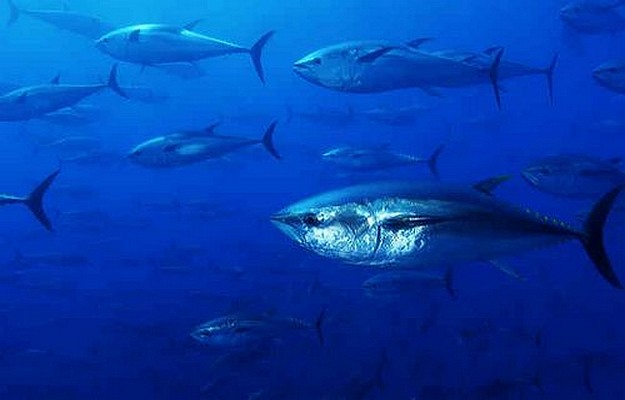-
Tips for becoming a good boxer - November 6, 2020
-
7 expert tips for making your hens night a memorable one - November 6, 2020
-
5 reasons to host your Christmas party on a cruise boat - November 6, 2020
-
What to do when you’re charged with a crime - November 6, 2020
-
Should you get one or multiple dogs? Here’s all you need to know - November 3, 2020
-
A Guide: How to Build Your Very Own Magic Mirror - February 14, 2019
-
Our Top Inspirational Baseball Stars - November 24, 2018
-
Five Tech Tools That Will Help You Turn Your Blog into a Business - November 24, 2018
-
How to Indulge on Vacation without Expanding Your Waist - November 9, 2018
-
5 Strategies for Businesses to Appeal to Today’s Increasingly Mobile-Crazed Customers - November 9, 2018
Marine species are in potential catastrophic decline — WWF report
“By over-exploiting fisheries, degrading coastal habitats and not addressing global warming, we are sowing the seeds of ecological and economic disaster”, Louise Heaps, chief advisor on marine police at WWF, said.
Advertisement
He said the creation of marine protected areas, where some damaging activities such as types of fishing are banned or limited, could play a key part in improving the health of the ocean.
The sharpest decline occurred between 1970 and the mid-1980s, then marine vertebrate populations were stable for a while.
According to the report, populations of locally and commercially fished species have also fallen by half, and some even more.
According to the report, the biggest drivers of these declining trends are from human actions-mainly overfishing, habitat destruction, and climate change. The report warns if steps are not taken coral reefs will be extinct by 2050.
It’s an analysis of a ZSL database called the Living Planet Index, which tracks changes in animal population sizes around the world-including 5,829 distinct populations of 1,234 marine species-from 1970 to 2012 (PDF). The WWF and ZSL hope their report can help conservationists combat the issues causing these heavy declines, including overfishing, pollution, and habitat loss.
Many marine ecosystems are interconnected, so what happens to one group of species also affects many others, the researchers said.
Many coral reefs, often described as the tropical rainforests of the oceans because of their rich diversity of life, could be threatened with extinction by mid-century if ocean acidity continues to worsen as a result of rising levels of Carbon dioxide in the atmosphere – which causes a corresponding rise in carbonic acid in the sea.
“The picture is now clearer than ever: humanity is collectively mismanaging the ocean to the brink of collapse”, said Marco Lambertini, the director general of WWF global .
Over 30% of fish tracked by the report rely on coral reefs, and these species show a unsafe decline of 34% between 1979 and 2010.
It states that overfishing, along with the effects of climate change are to blame for the drastic reduction in life with popular commercial fish species being the worst affected.
You can download a PDF of the Living Blue Planet Report here.
Advertisement
“Now is the time for the USA and other world players to lead on these important opportunities”, he added. He explained that living within sustainable limits will allow the ocean to contribute to not just food security but to livelihoods and economies as well.




























